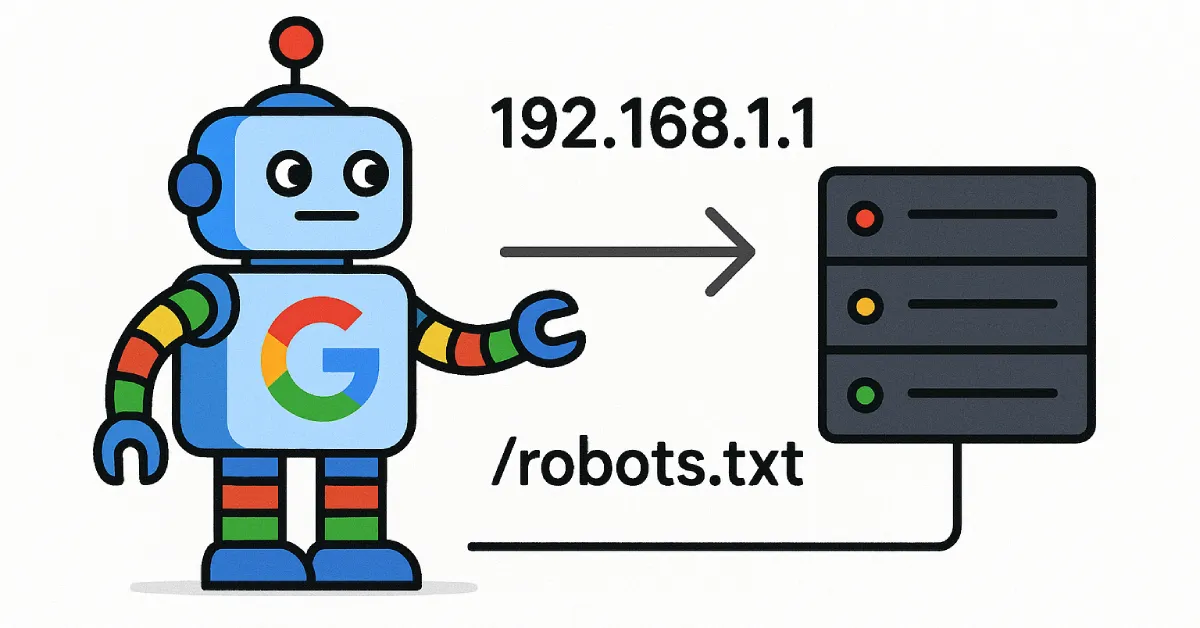Why Googlebot May Request /robots.txt via IP
As observed in the data below, Googlebot sometimes requests a website's resources-such as
/robots.txt-using the site's IP address rather than its hostname (domain name).
While Google has not publicly confirmed the exact purpose of this behavior, it is
allegedly associated with several possible technical and verification-related checks:
DNS Resolution Verification (alleged)
Googlebot may use direct IP access to verify that the DNS records for the hostname correctly resolve to the intended server. This could help detect potential misconfigurations, such as incorrect DNS entries, hijacking, or cases where the DNS directs traffic to a different server than the one actually serving the content.
Consistency and Duplicate Detection (alleged)
Accessing content via raw IP might allow Google to check whether the same material is delivered regardless of whether a request is made by domain name or IP. Such behavior could help with canonicalization (deciding which URL should be treated as the authoritative version) and reducing duplicate indexing.
Server and Network Diagnostics (alleged)
By bypassing DNS, direct IP requests may provide insight into how a server responds at the network level. This could highlight issues like firewall misconfigurations, unusual proxy behavior, or hosting irregularities.
Security and Authenticity Checks (alleged)
Since robots.txt defines crawl permissions, Googlebot may allegedly compare the
response when accessed by domain versus IP to identify discrepancies. Such a method could expose
attempts at cloaking (serving different instructions or content depending on access method),
which violates Google's guidelines.
Load Balancing and Infrastructure Verification (alleged)
In large-scale hosting environments, multiple servers are often deployed behind load balancers. Direct IP access may allegedly allow Googlebot to verify whether different nodes in the infrastructure deliver consistent responses.



Avi : Was the plugin officially approved in the Wordpress repo ?
Posted on: August 29, 2024